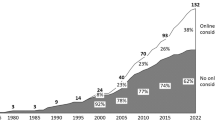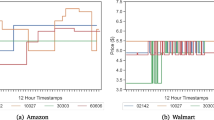Abstract
Previous durability studies conclude that a monopolist that sells output without any commitment ability will tend to produce output with lower durability than a monopolist that rents output. This paper demonstrates that this conclusion depends critically on the degree of moral hazard (possible damage to output) faced by renting firms. When moral hazard abuse or neglect is introduced in a durability model it is shown that a renter may manufacture output with lower durability than an uncommitted seller reversing the conventional obsolescence result. However, the analysis indicates that, unlike the seller's commitment problem, the presence of moral hazard in rental markets does not cause a failure of the independence of durability and industry structure.
Similar content being viewed by others
References
Abel, A. (1983) ‘Market Structure and the Durability of Goods’, Review of Economic Studies, 50, 625-637.
Avinger, R. (1981) ‘Product Durability and Market Structure: Some Evidence’, Journal of Industrial Economics, 29, 357-374.
Bhatt, S. (1989) ‘Demand Uncertainty in a Durable Goods Monopoly’, International Journal of Industrial Organization, 7, 341-355.
Bucovetsky, S. and J. Chilton (1986) ‘Concurrent Renting and Selling in a Durable-Goods Monopoly Under the Threat of Entry’, Rand Journal of Economics, 17, 261-275.
Bulow, J. (1982) ‘Durable Goods Monopolists’, Journal of Political Economy, 90, 314-332.
Bulow, J. (1986) ‘An Economic Theory of Planned Obsolescence’, Quarterly Journal of Economics, 101, 729-749.
Butz, D. (1990) ‘Durable Good Monopoly and Best-Price Provisions’, American Economic Review, 80, 1062-1076.
Coase, R. (1972) ‘Durability and Monopoly’, Journal of Law and Economics, 15, 143-149.
Goering, G. (1992) ‘Oligopolies and Product Durability’, International Journal of Industrial Organization, 10, 55-63.
Goering, G. and C. Read (1995) ‘Industry Structure and the Choice of Product Reliability’, Review of Industrial Organization, 10, 221-239.
Schmalensee, R. (1979) ‘Market Structure, Durability, and Quality: A Selective Survey’, Economic Inquiry, 17, 177-196.
Swan, P. (1970) ‘Durability of Consumption Goods’, American Economic Review, 60, 884-894.
Author information
Authors and Affiliations
Rights and permissions
About this article
Cite this article
Goering, G.E. Product Durability and Moral Hazard. Review of Industrial Organization 12, 399–411 (1997). https://doi.org/10.1023/A:1007799732257
Issue Date:
DOI: https://doi.org/10.1023/A:1007799732257




